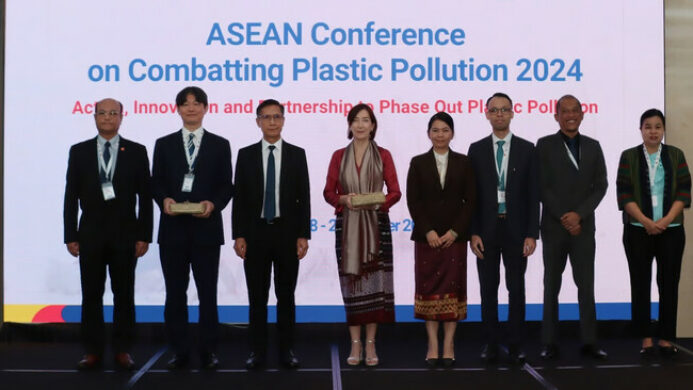Key outcomes of the conference included strategic discussions on applying circular economy principles, expanding Extended Producer Responsibility (EPR) schemes, and promoting behavioral changes to reduce single-use plastics. These actions are expected to drive the growth of green industries, increase investment in sustainable infrastructure, and encourage a circular economy that minimizes plastic waste. A shift in consumption patterns and industry practices can reduce plastic pollution, creating lasting change within communities.
The conference was also briefed on the ongoing intergovernmental negotiations which aim to develop an internationally binding instrument on plastic pollution. Such efforts could strengthen global commitments and policies that prioritize sustainable materials. Participants also highlighted the importance of improving the working conditions of informal waste workers, who play a crucial role in recycling efforts across the region. Other highlights featured the introduction of the Global Plastic Action Partnership and a showcase of the UNDP-led Ending Plastic Pollution Innovation Challenge winners.
Tetsuya Watanabe, President of ERIA, reaffirmed ERIA’s dedication to supporting ASEAN Member States’ vision, stating, ‘ERIA remains steadfast in its commitment to contributing to ASEAN’s efforts in phasing out plastic pollution through collaborative and innovative solutions.’ He also expressed satisfaction with ERIA’s role in formulating the ASEAN Declaration on Plastic Circularity.
The successful conclusion of ACCPP 2024 marked another significant step in ASEAN’s journey toward a circular economy and a cleaner environment for all.
About RKCMPD
About ERIA and RKC-MPD
ERIA is an international organization established in 2008 by the Leaders of East Asia Summit (EAS) member countries. ERIA provides research and policy support to governments, businesses, and civil society in the ASEAN and East Asia region, working closely with the ASEAN Secretariat and other multilateral organizations.
Tampilkan Semua

